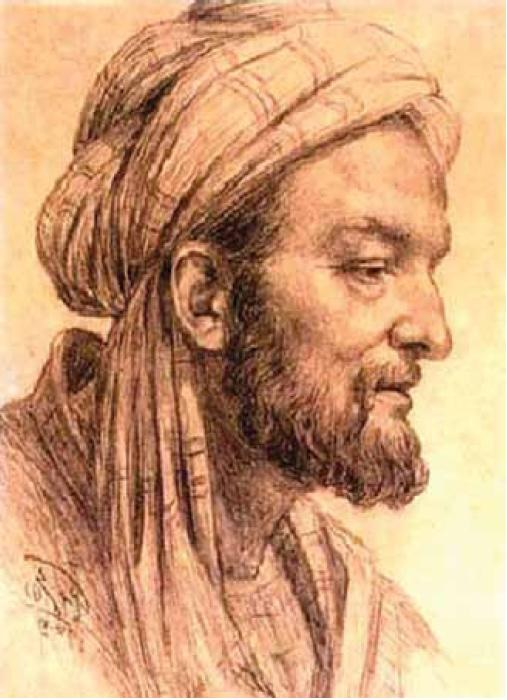"The Bridge Between East and West - Ibn Rushd (Averroes)
In the vibrant city of Cordoba, where the echoes of Andalusian music mingled with the fragrance of orange blossoms, there lived a philosopher whose ideas would bridge the gap between East and West, shaping the course of human thought for centuries to come. His name was Ibn Rushd, known in the West as Averroes, and his legacy would transcend the boundaries of time and space.
Born into a world where the intellectual traditions of Islam intersected with the cultural heritage of al-Andalus, Ibn Rushd's early years were marked by a thirst for knowledge that knew no bounds. Raised amidst the gleaming mosques and bustling markets of 12th-century Cordoba, he was exposed to a rich tapestry of ideas from a young age, drawn from the wisdom of Greek philosophy, Islamic theology, and the scientific achievements of the ancient world.
From the opulent libraries of Cordoba's palaces to the bustling marketplaces of Seville and Toledo, Ibn Rushd journeyed far and wide in search of intellectual enlightenment, guided by the belief that the pursuit of truth was the highest calling of the human soul. Along the way, he studied under some of the greatest scholars and philosophers of his time, immersing himself in the intricacies of metaphysics, ethics, and political theory.
It was here, amidst the cultural melting pot of al-Andalus, that Ibn Rushd's intellect blossomed like a desert garden, unfolding layer by layer to reveal the dazzling breadth of his philosophical insights. Drawing upon the teachings of Aristotle and Plato, he sought to synthesize the diverse strands of philosophical thought into a coherent and systematic framework that could reconcile reason with revelation.
Yet, Ibn Rushd's quest for intellectual enlightenment was not without its challenges. Living in a world where religious orthodoxy often clashed with philosophical inquiry, he faced fierce opposition from conservative theologians who viewed his rationalist approach with suspicion and mistrust.
Undeterred by their condemnation, Ibn Rushd continued to pursue his studies, guided by the belief that reason and revelation were complementary paths to truth. In his magnum opus, the ""Tahafut al-Tahafut"" (The Incoherence of the Incoherence), he defended the compatibility of philosophy and religion, offering insights into the relationship between faith and reason that continue to resonate with thinkers to this day.
As the years went by, Ibn Rushd's fame spread far and wide, drawing scholars and students from all corners of the Islamic world to study his works. His commentaries on Aristotle became indispensable tools for those who sought to understand the complexities of Greek philosophy, while his philosophical treatises on ethics and politics offered insights into the nature of the human soul and the ideal society.
Yet, for all his brilliance, Ibn Rushd remained humble, ever mindful of the limitations of human understanding. His legacy, however, would endure long after his passing, a bridge between East and West, a testament to the enduring power of human reason and philosophical inquiry.
Influence and Legacy:
Ibn Rushd's works would go on to influence generations of scholars and thinkers, shaping the course of philosophy, theology, and science in both the Islamic world and medieval Europe. His commentaries on Aristotle played a crucial role in the transmission of Greek thought to the Latin West, where they would inspire later luminaries such as Thomas Aquinas and Albertus Magnus.
Yet, despite his monumental contributions, Ibn Rushd's name would often be overshadowed by those of later luminaries. It was not until the Renaissance that Western scholars would come to fully appreciate the depth and breadth of his philosophical insights, whose rationalist approach continues to inspire scholars and thinkers around the world.
Today, as we ponder the mysteries of existence and the nature of human knowledge, let us remember Ibn Rushd, whose legacy endures as a beacon of light amidst the darkness of ignorance, a bridge between East and West, a testament to the enduring power of human reason and philosophical inquiry.
Notable Works:
1. ""Tahafut al-Tahafut"" (The Incoherence of the Incoherence) - A defense of philosophy against attacks from orthodox theologians, offering insights into the compatibility of reason and revelation.
2. Commentaries on Aristotle - A series of commentaries on Aristotle's works, including ""The Physics,"" ""The Metaphysics,"" and ""The Nicomachean Ethics,"" which became indispensable tools for scholars in both the Islamic world and medieval Europe.
3. ""Bidayat al-Mujtahid"" (The Distinguished Jurist's Primer) - A legal treatise on Islamic jurisprudence, offering insights into the principles of Islamic law and legal reasoning.
Related Scholars:
Ibn Rushd's legacy resonated with later philosophers and scholars, including Ibn Sina, al-Farabi, and Maimonides, who built upon his insights and expanded the horizons of human knowledge.
"






Zahra Mahmoud
Delete Comment
Are you sure that you want to delete this comment ?
Yasmin Akhtar
Delete Comment
Are you sure that you want to delete this comment ?
Khalid Rizvi
Delete Comment
Are you sure that you want to delete this comment ?
Amarachi Anyanwu
Delete Comment
Are you sure that you want to delete this comment ?
Maryam Al-Masri
Delete Comment
Are you sure that you want to delete this comment ?
Delete Comment
Are you sure that you want to delete this comment ?
Noor Khan
Delete Comment
Are you sure that you want to delete this comment ?
Nour Farouk
Delete Comment
Are you sure that you want to delete this comment ?
Tanvir Islam
Delete Comment
Are you sure that you want to delete this comment ?
Roksana Rahman
Delete Comment
Are you sure that you want to delete this comment ?
WisdomWhisper
Delete Comment
Are you sure that you want to delete this comment ?
Hamza Butt
Delete Comment
Are you sure that you want to delete this comment ?
Yasmin Traore
Delete Comment
Are you sure that you want to delete this comment ?